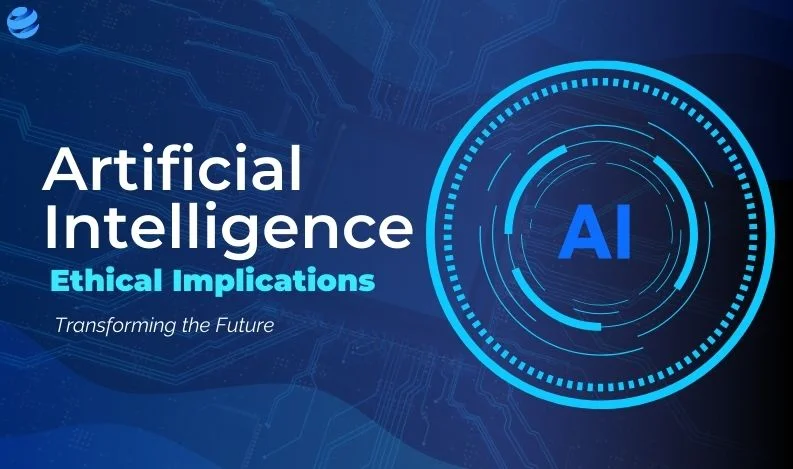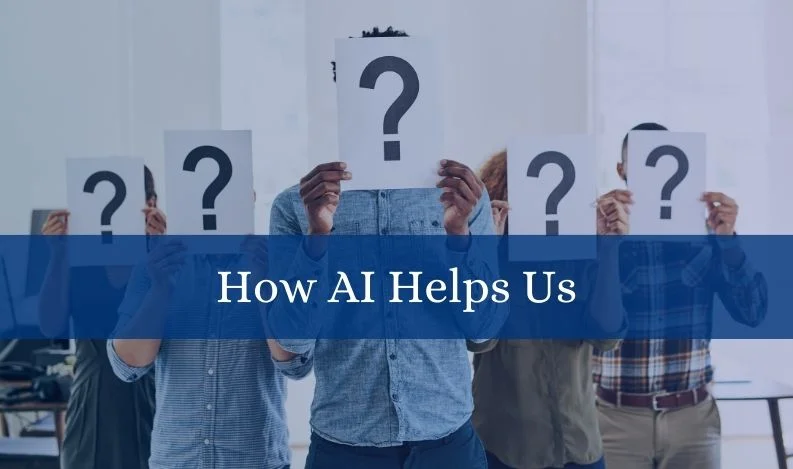Artificial Intelligence (AI) is rapidly transforming our world. From helping us in our daily lives to aiding in complex medical procedures, AI is becoming a crucial part of our society. However, as AI becomes more prevalent, it also brings a set of ethical challenges that we must address. This blog will explore the ethical implications of AI, using simple language to make it accessible to everyone, including young students.
What is Artificial Intelligence?
Artificial Intelligence, or AI, refers to machines or software that can perform tasks that typically require human intelligence. This includes tasks like understanding language, recognising patterns, solving problems, and making decisions.
Examples
AI can be found in many places. For instance, when you ask your phone a question and it answers, that is AI. When you see personalised ads on the internet, that is also AI. It is present in smart home devices, video games, and even cars.
How AI Helps Us
Daily Life
In our daily lives, AI assists us in numerous ways. It helps us search the internet more effectively, provides recommendations for movies or music, and can even help us manage our schedules. Virtual assistants like Siri and Alexa are examples of AI that help us with everyday tasks.
Medicine
In the field of medicine, AI is a game-changer. It helps doctors diagnose diseases more accurately by analysing medical images and patient data. AI can suggest treatment plans and even assist in surgeries, leading to better patient outcomes and improved healthcare.
Education
AI is also making a significant impact on education. It provides personalised learning experiences for students, helping them learn at their own pace. AI-powered tools can identify areas where students need more help and offer additional resources. This ensures that every student receives the support they need to succeed.
Business
Businesses use AI to improve their operations and serve their customers better. AI can analyse vast amounts of data to predict customer preferences, optimise supply chains, and even detect fraud. This helps businesses make better decisions and become more efficient.
Problems with AI
Job Loss
One of the biggest concerns about AI is job loss. As AI becomes more capable, it can perform tasks that were previously done by humans. This can lead to job displacement, where people lose their jobs because machines can do the work more efficiently and cheaply. This is a significant issue that needs to be addressed to ensure that everyone can benefit from the advancements in AI.
Privacy
AI systems collect and analyse a large amount of data. This data often includes personal information, such as browsing habits, location data, and even biometric information. The collection and use of this data raise privacy concerns. It is essential to protect individuals' privacy and ensure that their data is used ethically and responsibly.
Bias
AI systems learn from data. If the data used to train AI is biased, the AI will also be biased. This can lead to unfair outcomes, such as discrimination in hiring, lending, and law enforcement. Ensuring that AI systems are fair and unbiased is a significant ethical challenge.
Control
Another concern is who controls AI. AI systems are powerful, and if not controlled properly, they can cause harm. For example, autonomous weapons powered by AI could be used in warfare, leading to unintended consequences. It is crucial to have proper regulations and oversight to ensure that AI is used safely and ethically.
Ethical Issues in AI
Fairness
AI systems must be fair. This means that they should not discriminate against any individual or group. Fairness is particularly important in areas like hiring, lending, and law enforcement, where biased AI systems can have serious consequences. Ensuring fairness requires careful design and testing of AI systems.
Transparency
Transparency means that AI systems should be understandable. We should know how they make decisions and what data they use. This helps build trust in AI systems and allows us to identify and fix any issues. Transparency is essential for ensuring that AI systems are accountable and trustworthy.
Accountability
Accountability means that someone should be responsible for the actions of AI systems. If an AI system makes a mistake, there should be a way to address it and correct the problem. This helps ensure that AI systems are used responsibly and that any harm caused by AI can be remedied.
Privacy
Protecting privacy is crucial in the age of AI. AI systems should collect and use data responsibly, ensuring that individuals' personal information is protected. This includes implementing strong security measures and giving individuals control over their data.
Security
AI systems must be secure. This means protecting them from hacking and other cyber threats. If an AI system is compromised, it can cause significant harm. Ensuring the security of AI systems is essential for protecting individuals and society as a whole.
AI and the Future
New Jobs
While AI can lead to job loss, it can also create new jobs. As AI technology advances, there will be a need for people to develop, maintain, and oversee AI systems. This includes jobs in programming, data analysis, and AI ethics. Preparing the workforce for these new jobs is essential for ensuring that everyone can benefit from AI.
Better Lives
AI has the potential to improve our lives in many ways. It can make our daily tasks easier, help us stay healthy, and provide us with new opportunities for learning and growth. By addressing the ethical challenges of AI, we can ensure that these benefits are accessible to everyone.
Ethical AI
Creating ethical AI is crucial for the future. This means designing AI systems that are fair, transparent, accountable, and secure. It also means implementing regulations and oversight to ensure that AI is used responsibly. By focusing on ethical AI, we can create a future where AI benefits everyone and helps build a better world.
Conclusion
Artificial Intelligence is a powerful tool that can help us in many ways. However, it also brings significant ethical challenges that we must address. By focusing on fairness, transparency, accountability, privacy, and security, we can ensure that AI is used responsibly and ethically. This will help us create a future where AI benefits everyone and contributes to a better world.
Understanding the ethical implications of AI is essential for everyone, including young students. By learning about these issues, we can all play a part in shaping the future of AI and ensuring that it is used for the greater good. Together, we can create a world where AI helps us achieve our goals and improves our lives, while also respecting our values and ethical principles.
























